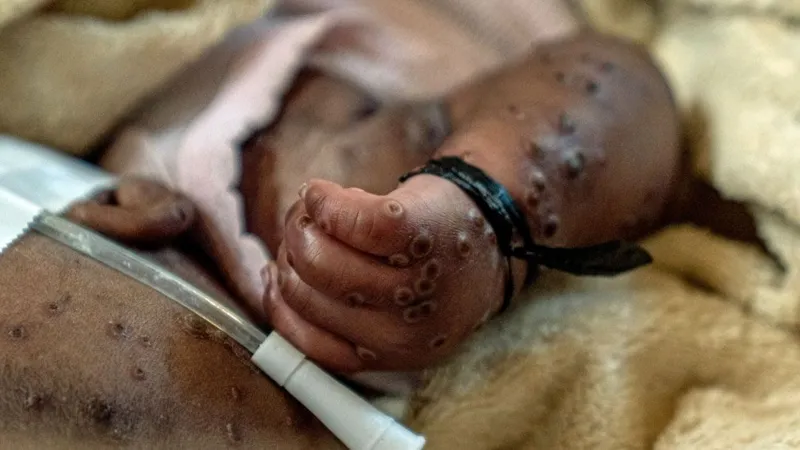More Babies Admitted with Mpox as DR Congo Pleads for Vaccines
In Lwiro community hospital in eastern DR Congo, there’s been a sharp rise in mpox cases, especially among babies. Medical staff are calling urgently for vaccines to help control the outbreak, according to a BBC report.
The hospital in South Kivu is overwhelmed, with new patients arriving daily and a critical shortage of supplies. Mpox, a highly contagious virus similar to smallpox, has already killed 635 people in DR Congo this year.
While 200,000 vaccines were recently delivered to the capital, Kinshasa, they haven’t reached South Kivu yet. It could take weeks before they arrive due to the need for special storage and transportation. This delay is causing frustration among medical workers, who are struggling to manage the growing number of cases with limited resources.
Nurse Emmanuel Fikiri expressed his concern, noting that this is his first time dealing with mpox and he worries about spreading it to his own children. The BBC highlights that transporting the vaccines is complicated by the need to keep them frozen and the poor infrastructure in rural areas.
Dr. Pacifique Karanzo, a doctor at Lwiro hospital, is exhausted and frustrated. He described the dire conditions, including patients sharing beds and a severe lack of personal protective equipment. The clinic, which typically sees about 80 patients a month, now has nearly 200, with many being very young children.
Local residents, like 18-year-old Faraja Rukara, are deeply worried as their children suffer from this new disease. The hospital’s first patient, 10-month-old Amenipa Kabuya, did recover, but her mother, Yvette Kabuya, has now fallen ill with mpox too.
The outbreak is also worsened by ongoing armed conflicts, which make it difficult to distribute vaccines and other aid. South Kivu’s governor, Jean-Jacques Purusi Sadiki, noted that much of the financial resources are diverted to military efforts rather than health needs.
Despite these challenges, officials say vaccination efforts will start in October, prioritizing children and those in close contact with infected patients. The governor is hopeful that with political will, the outbreak can be controlled.
Dr. Karanzo and his colleagues remain hopeful but stressed, as the situation continues to evolve. They are encouraged by the growing awareness about mpox in the region, but they stress that immediate action with vaccines, medicine, and improved hygiene is crucial to stop the spread of the disease.
This report is based on coverage by the BBC.
https://www.bbc.com/news/articles/c4gen21ln7go

